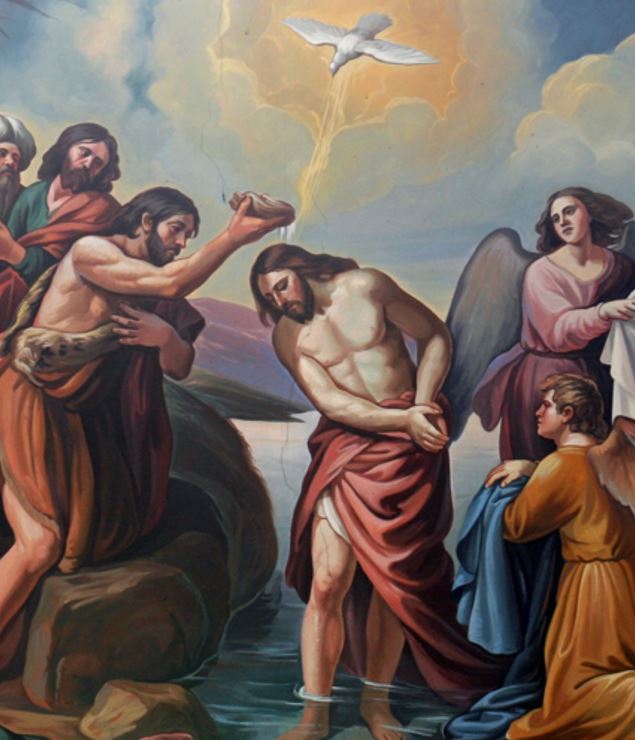
Mark Chapter 1 – 9 Key Insights
Introduction: The Gospel of Mark opens with a powerful declaration of the good news—God’s kingdom has come through Jesus Christ, the Son of God. Mark’s gospel focuses heavily on action and authority, introducing key themes like repentance, faith, and Jesus’ power over sin, sickness, and spiritual darkness. Chapter 1 lays the foundation for Jesus’ ministry, emphasizing His identity as the Messiah and His call for people to repent and believe in the gospel.
1. The Gospel Proclaimed (Mark 1:1)
The very first verse of Mark boldly proclaims, “The beginning of the gospel of Jesus Christ, the Son of God.” This announcement heralds the arrival of the gospel, the good news that a new king—Jesus—is reigning. The word gospel means “good news,” and it emphasizes that God is doing something extraordinary in our lives through His Son, Jesus. This message demands not only proclamation but also belief. We are called to receive and believe the gospel, just as the early disciples and evangelists did, even to the point of sacrificing their lives to proclaim it. The core of the gospel is that Jesus Christ died for our sins, bringing salvation to all who believe.
2. John the Baptist Prepares the Way (Mark 1:2-8)
Mark introduces John the Baptist as the fulfillment of Isaiah’s prophecy. John’s mission was to prepare the way for Jesus by calling people to repentance. His message was clear: all men are sinners, and only through repentance can they be forgiven. John’s humility shines as he declares, “I am not worthy to stoop down and untie the sandals of the one coming after me.” His life in the wilderness—eating locusts and wild honey, baptizing in the Jordan River—echoes the Israelites’ journey through the wilderness to the Promised Land, reminding Israel of God’s faithfulness and their need for spiritual renewal.
John also foretold that Jesus would baptize not just with water, but with the Holy Spirit, marking the beginning of a new covenant. The greatest gift Jesus offers is the indwelling of the Holy Spirit, which empowers believers to live transformed lives.
3. The Baptism of Jesus (Mark 1:9-11)
Though sinless, Jesus chose to be baptized by John, symbolizing His identification with humanity’s sin and His role as our representative. Jesus’ journey from Nazareth to the Jordan—a week-long trip—demonstrates His willingness to fulfill God’s plan. When Jesus was baptized, the heavens opened, the Holy Spirit descended like a dove, and God’s voice declared, “You are My beloved Son; with You I am well pleased.” This event marks the beginning of Jesus’ public ministry and affirms His divine identity.
Jesus’ baptism also serves as a model for us. Just as He was obedient to God’s will, we are called to follow His example. When we take steps of obedience and sacrifice, God’s presence is with us, just as the Holy Spirit came upon Jesus.
4. The Temptation of Jesus (Mark 1:12-13)
After His baptism, the Spirit immediately led Jesus into the wilderness, where He was tempted by Satan for forty days. This period of temptation reflects the spiritual struggles we face as believers. Jesus’ victory over the devil reveals His power and authority as the Son of God, and it assures us that we can also overcome temptation through God’s strength. During this time, Jesus was surrounded by wild animals but was also attended by angels, signifying that God’s protection is with us even in our trials.
5. Jesus Begins His Ministry (Mark 1:14-20)
Following John the Baptist’s arrest, Jesus begins His public ministry with the message, “The time is fulfilled, and the kingdom of God is at hand; repent and believe in the gospel.” This call to repentance and faith lies at the heart of the Christian life. Jesus’ arrival signified that God’s kingdom was now present on earth, and the proper response was to turn from sin and believe in Him.
As Jesus walked along the Sea of Galilee, He called His first disciples—Simon (Peter), Andrew, James, and John—who were simple fishermen. They immediately left everything to follow Him, illustrating the radical nature of discipleship. Jesus saw their potential and called them into a life of ministry, showing that God chooses ordinary people to do extraordinary things. The fact that they immediately responded reflects their faith and willingness to leave behind all that was familiar to them in order to follow Jesus.
6. Jesus’ Authority Over Unclean Spirits (Mark 1:21-28)
Jesus’ authority is evident as He begins teaching in the synagogue at Capernaum. The people were astonished because He taught with authority, unlike the scribes, who relied on human traditions. While teaching, a man possessed by an unclean spirit cried out, recognizing Jesus as “the Holy One of God.”
Even though the unclean spirit knew Jesus’ identity, Jesus silenced and cast out the spirit, showing that mere knowledge of Jesus is insufficient for salvation. True faith requires not only recognizing who Jesus is but also having a personal relationship with Him. This event demonstrated Jesus’ power over evil and His authority as the Messiah.
7. Jesus Heals Peter’s Mother-in-Law (Mark 1:29-31)
After teaching in the synagogue, Jesus went to the house of Simon Peter, where his mother-in-law lay sick with a fever. Jesus, understanding her need, took her by the hand and helped her up, and she was immediately healed. This healing illustrates three key points:
- Jesus’ Initiative in Healing: Without being asked, Jesus proactively went to Peter’s mother-in-law and healed her, showing that He understands our unspoken needs and acts with compassion.
- The Power of Jesus’ Touch: By taking her hand, Jesus not only healed her physically but also made a personal connection. His touch signifies His care and willingness to lift us up in our struggles. We, too, can ask Jesus to “hold our hands” and trust that He will lift us up when we are in need.
- Healing Leads to Service: After being healed, Peter’s mother-in-law immediately began serving those around her. This shows that the purpose of healing and deliverance is not just for personal benefit, but to empower us to serve others and fulfill God’s purpose in our lives.
8. Jesus Prays Early on Sunday Morning (Mark 1:35-39)
Early in the morning, while it was still dark, Jesus withdrew to a solitary place to pray. Despite being the Son of God, Jesus prioritized communion with the Father, showing us the importance of prayer. His time in prayer gave Him the strength to resist the temptation to stay in Capernaum, where He was already popular, and instead continue His mission to preach in other towns.
Jesus’ example reminds us of the importance of personal prayer, especially at the start of our day or before we engage in ministry. His obedience to God’s calling, even when it meant leaving comfort behind, serves as a model for us to follow.
9. The Cleansing of a Leper (Mark 1:40-45)
A leper approached Jesus, saying, “If You are willing, You can make me clean.” Moved with compassion, Jesus touched the man and healed him. Leprosy was a disease that made people outcasts, but Jesus’ touch broke social and religious boundaries. His touch didn’t just heal physically; it restored the man’s place in the community and gave him new life.
Jesus’ instruction to the man to keep quiet about the healing reflects the Messianic Secret—the idea that people should not fully proclaim Jesus’ identity until they understood His mission as the Messiah. The healed man’s disobedience made it difficult for Jesus to enter towns because of His growing popularity, but it also foreshadowed the way Jesus would take on the role of the sinner, allowing us to be free. On the cross, Jesus took our place, becoming sin for us so that we might be made righteous and restored to a relationship with God.
Conclusion: Mark Chapter 1 establishes the foundation of Jesus’ ministry, emphasizing His authority, compassion, and call for repentance and belief in the gospel. Through His teachings, healings, and casting out of demons, Jesus revealed Himself as the Son of God and the Savior of the world. The message of Mark 1 is clear: Jesus came to save, and our response should be one of repentance, faith, and a willingness to follow Him, no matter the cost. May we draw closer to Him, trusting in His power to heal, restore, and guide us in every aspect of our lives.
